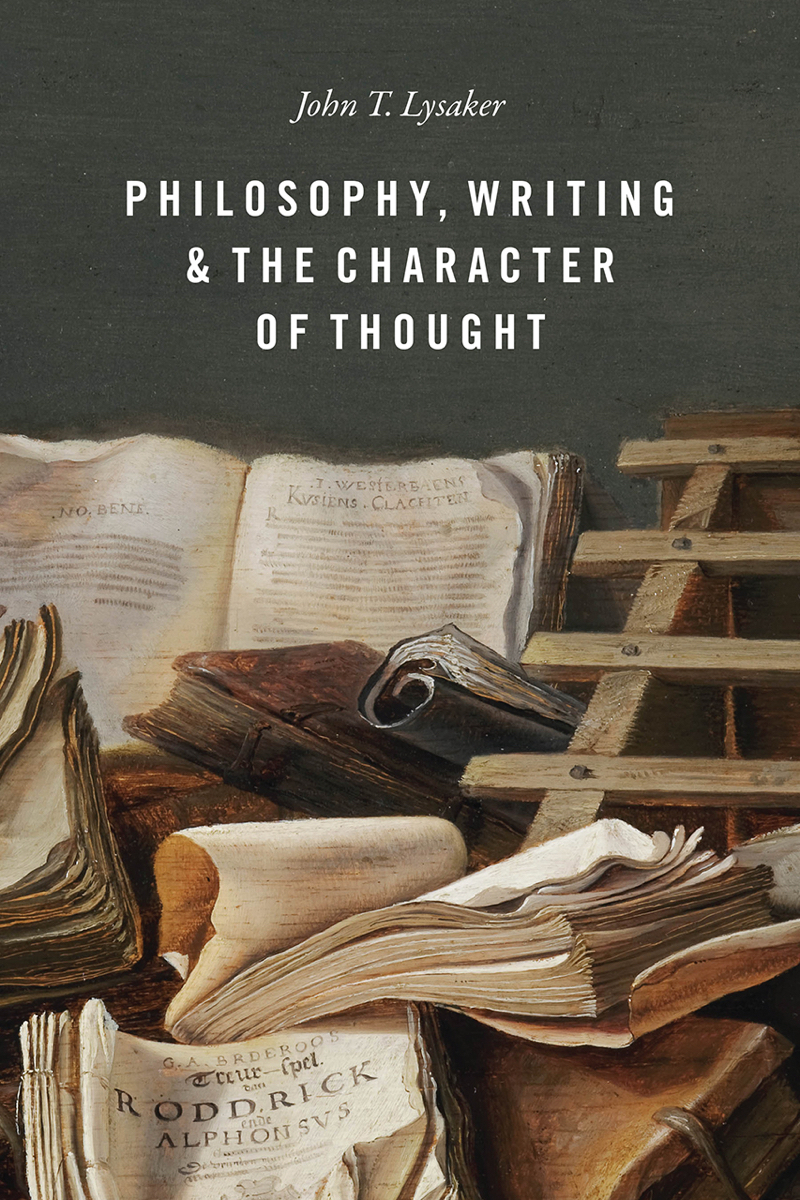Philosophy, Writing, and the Character of Thought
In dialogue with such authors as Benjamin, Cavell, Emerson, and Lukács, I try to revitalize philosophical writing, arguing that philosophy cannot fulfill its intellectual and cultural promise if it keeps to professional articles and academic prose. Philosophy must embrace writing as an essential, creative activity, and deliberately reform how it approaches its subject matter, readership, and the practice of reading and reflection.
"Philosophy, Writing, and the Character of Thought is a bold and courageous book. John Lysaker, at the level of form and in the substance of his powerful writing, shows us what philosophy can be and what it can do." Eddie Glaude
“Lysaker provides a tour de force self-examination and analysis of philosophical writing and philosophical purpose. … Summing Up: Essential.” CHOICE
“Anyone who worries about whether or how philosophy can be relevant to the times in which we live will want to study this book deeply. Its deliberativeness is matched only be the passion and force with which the questions asked are delivered over to readers.” Jeffrey Bernstein, Philosophy in Review
“This is one of the best books I have read in a while. Powerful and original, it is about writing and not knowing how to write. It is about displacement, and being uprooted, and disorientation. … This is a book about how to philosophize that requires that we create new ways, forms, genres, “styles,” gestures, of writing and communicating.” Eduardo Mendieta
“This book is a profound meditation on what it means to write philosophy … Lysaker’s own text defies all standard genres—it is itself sui generis—as it creates its own original unique mixture of reflection and critique. … Lysaker shows that philosophy at its best is an experi-mentation and a provocation; and his own text, at once learned and wry, humorous and dead serious, eloquent and forceful, is both of these at once.” Edward S. Casey
“Lysaker is attempting something very difficult, maybe impossible, in philosophy: a revitalization of the discipline by returning to its most vibrant (but also most confusing) expressions — fragments, aphorisms, quotations, confessions, essays, ironies, rhetorical questions.” John Kaag, Los Angeles Review of Books
